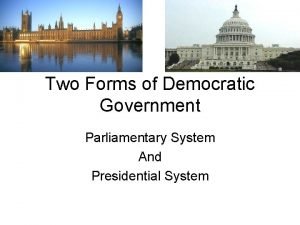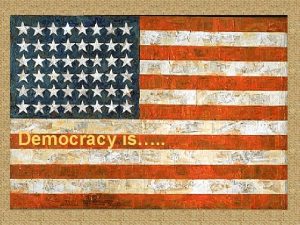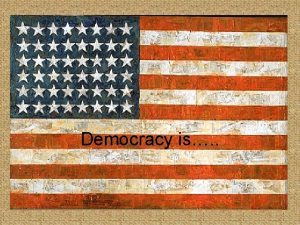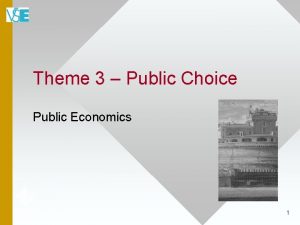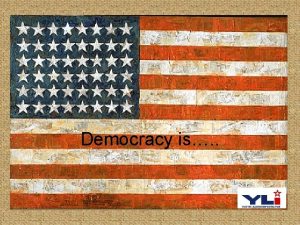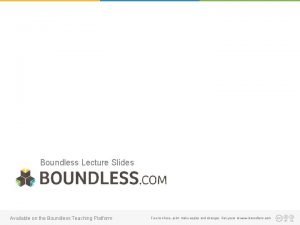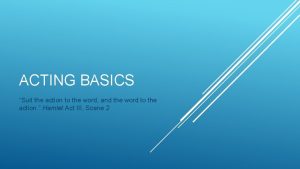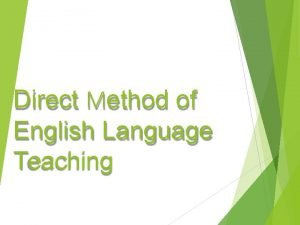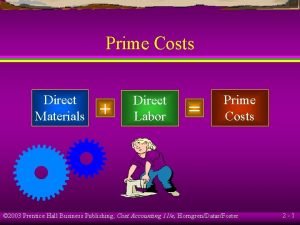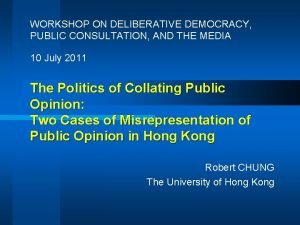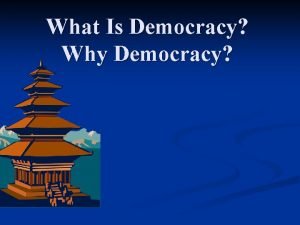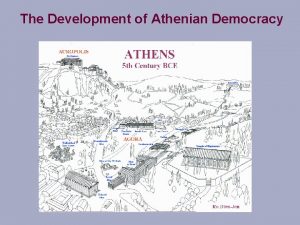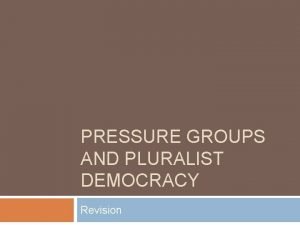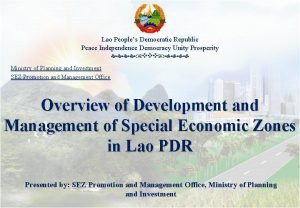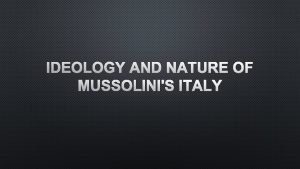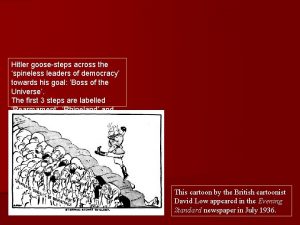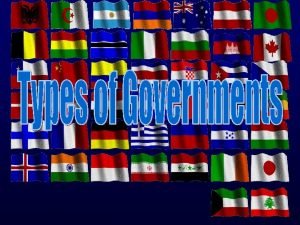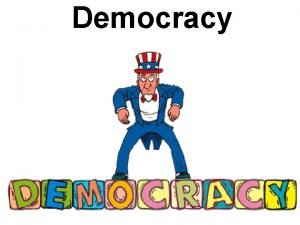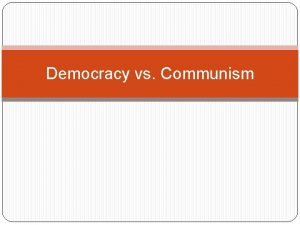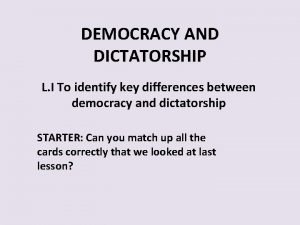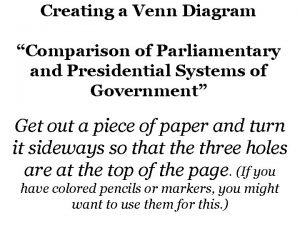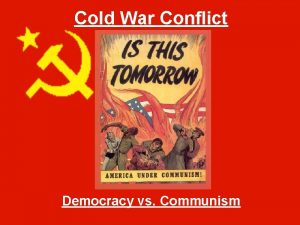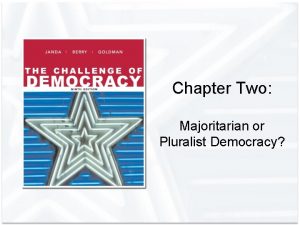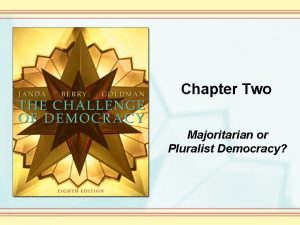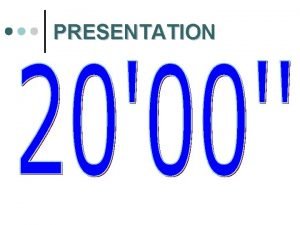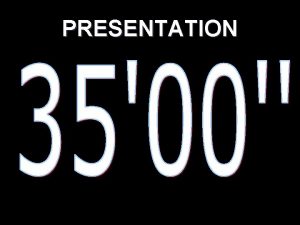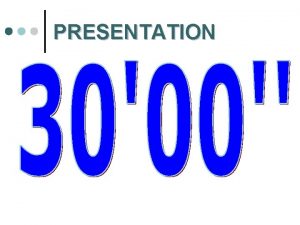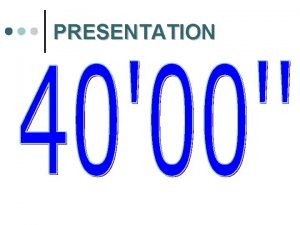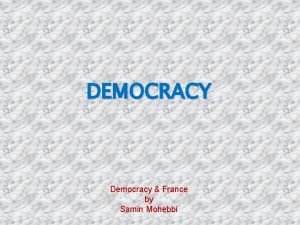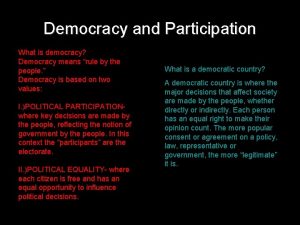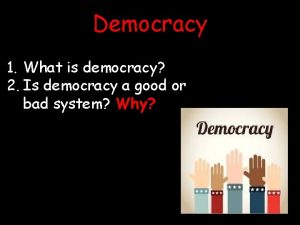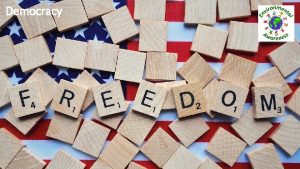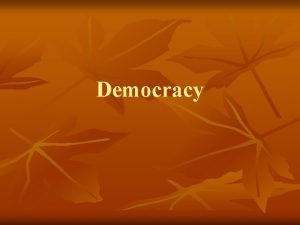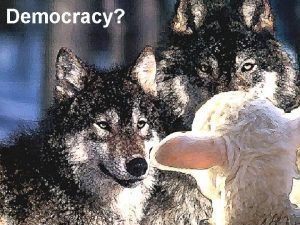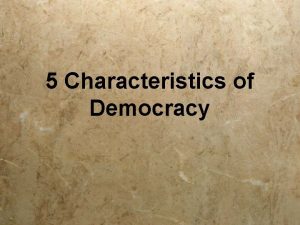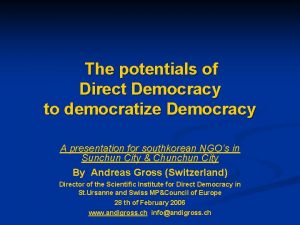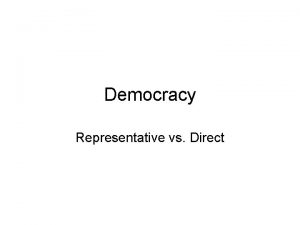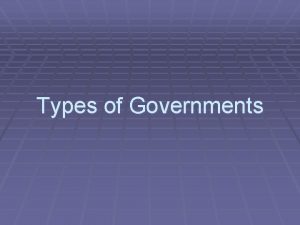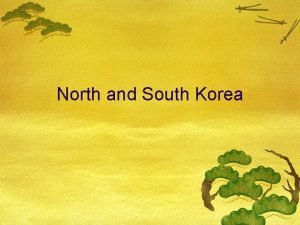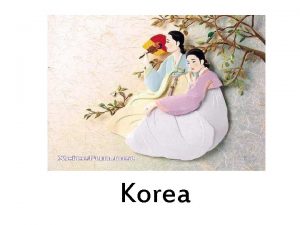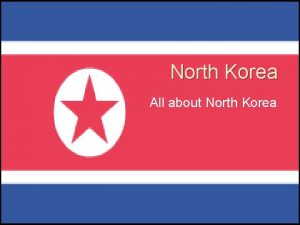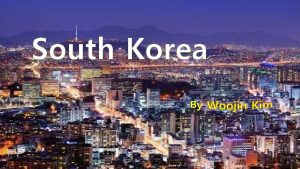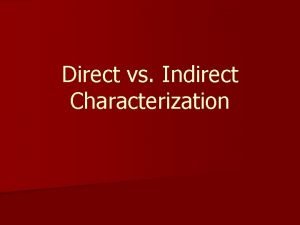Direct Action Democracy in Korea Presentation at Korea






















![Nighttime Outdoor Assembly Ban Case [156 KCCG 1633, 2008 Hun-Ka 25, September 24, 2009] Nighttime Outdoor Assembly Ban Case [156 KCCG 1633, 2008 Hun-Ka 25, September 24, 2009]](https://slidetodoc.com/presentation_image_h/81ecd6bbec644807c00c891f226c37c3/image-23.jpg)















- Slides: 38

Direct Action Democracy in Korea Presentation at Korea Law Center of Berkeley, Aug. 30 th 2018 Prof. Kuk-Woon LEE, Handong University, Korea(S) 1

A Musing upon Candlelight Rally 2016 -7 in Seoul

1. A Trinitarian Theory of (Direct Action) Democracy : Action, Deliberation, and Decision

Beyond Dichotomy Current discourse on direct democracy is based upon a distinction between direct and indirect democracy. People’s initiative, referendum, people’s recall are usually called three representing institutions of direct democracy. This institutional distinction has inevitable aspect but can never include all the phenomena of direct democracy, one of which is the candlelight rally of 2016 -7 happened in Seoul, Korea. This presentation is to review this interesting event of democracy in the perspective of direct action democracy. But it needs to reconsider theory of democracy as well as human politics before an analysis.

Democracy & Action Democracy needs action such as speaking, gathering, voting, picketing etc. Without action, democracy is just a word. To make democracy real, people have to do something actually. As Hannah Arendt taught, politics is done by dialogue not violence. So politics can start with an action, which is dialogue, to stop violence. Dialogue is action. As Morris Merlo-Pointy reminded us, human politics need action because human beings have their own bodies. As a type of human politics, democracy needs action. In this sense, democracy is body politics. Since democracy is people’s self-rule basically, it needs common action, I mean, action-together. Scattered, individualized actions can not make

Democracy & Deliberation Democracy needs deliberation. Action cannot make democracy know why and how to work. Deliberation should be added. Why deliberation? Two fundamental reasons for human politics in general. First is that human politics happen between human beings. Second is that human politics is a mutual thinking-politics. As a type of human politics, democracy needs deliberation more desperately. For it starts and ends with the equality of human beings. Among equal human beings, mutual thinking-politics can happen only in various forms of deliberation. Democracy is a difficult political project. Deliberation needs action also. To make deliberation happen, some kind of actions like organizing meeting, table-setting, ushering & welcoming, moderating should go ahead.

Democracy & Decision Without deliberation, action is blind. Without action, deliberation is meaningless. Then, what can connect with each other in human politics, especially democracy? As Carl Schmitt declared, decision makes human politics. Without decision, human politics is endless repetition of action & deliberation. Decision completes this round, at least one, of human politics. As a kind of human politics, democracy needs decision. However the decision should be made by the people and justified of & for the people. Again, democracy is a difficult political project. In Democracy, decision should be followed by democratic action to implement and democratic deliberation to reflect. Rounds continue after rounds and these are called democratic process. Democratic process needs democratic action, deliberation, and decision. If any of them lacks, it cannot work

What is Direct Action? In human politics, the trinity of action, deliberation, decision does not work well sometimes. Because of laziness, stupidity, avarice, or emergence, human politics experience dead-locks and/or break-down. This is the time when direct action is needed. To make human politics work, the sovereign even exercises extraordinary constitutional power, usually called the Royal Prerogatives. Most military coups justify themselves as emergent, exceptional, and direct action. Direct action squeezes ordinary action, deliberation, and decision into one. This is what direct action literally mean. In this sense Carl Schmitt might be amended: Sovereign is he who

What is Direct Action Democracy? As human politics, democracy needs direct action. In democracy, the trinity of action, deliberation, decision does not work well more often. The weakness of human politics tend to be amplified in democracy. Democracy is easy to be in dead-locks and/or breakdown. However, the way direct action appears in democracy is different from other human politics. Even if most democratic constitutions keep clauses of martial law, direct action in democracy should be democratic. For democracy knows no other sovereign but the people. Direct action is usually defined as “people’s social and political protest to claim a greater democratic control. ” Why does direct action appear in forms of social and political protest? It is because the sovereign in democracy, like sovereign in other human politics, cannot be regulated unless they want to. Then, how can direct action in democracy be exercised? How can the people squeezes ordinary action, deliberation, and decision into one? How can they decide and act directly on the exception? How can they contribute to revive the trinity of democracy as soon as possible? These questions were raised by and to the Korean

2. Political Scandal &Impeachment in 2016 -7

Political Scandal Revelations emerged in late October 2016, that President Park Geun-hye’s aide, Choi Soon-sil, who had no official position in the government, had used her position in illegal ways. On 31 October, Choi Soon-sil was arrested by prosecutors, having concluded that there was enough evidence for indictment. She was formally charged with abuse of power and fraud on November 20. Park made a second apology on November 4, pledging to take responsibility if she was found guilty, and a third apology on 29 November, calling for the National Assembly to decide the manner of her departure, but this was rejected by the opposition-controlled legislature. Protests across South Korea began on 26 October with Park's approval rating dropping to 4%, and according to an opinion poll, as of 9 December 78% of South Koreans supported her impeachment. President Park appointed Park Young-soo, former head of the Seoul High Prosecutors' Office, as a special prosecutor to investigate the allegations on 30 November. People started to insist President Park’s resignation or impeachment.

President 66: (1) The President shall be the Head of State and represent the State vis-à-vis foreign states. (2) The President shall have the responsibility and duty to safeguard the independence, territorial integrity and continuity of the State and the Constitution. (3) The President shall have the duty to pursue sincerely the peaceful unification of the homeland. (4) Executive power shall be vested in the Executive Branch headed by the President. 67: (1) The President shall be elected by universal, equal, direct and secret ballot by the citizens. (2)-(5) (omitted) 68: (1) The successor to the incumbent President shall be elected seventy to forty days before his term expires. (2) In case a vacancy occurs in the office of the President or the President-elect dies, or is disqualified by a court ruling or for any other reason, a successor shall be elected within sixty days. 71: If the office of the presidency is vacant or the President in unable to perform his duties for any reason, the Prime Minister or the member of the State Council in the order of priority as determined by Act shall act for him.

How to Impeach President 65: (1) In case of the President, the Prime Minister, members of the State Council, heads of Executive Ministries, Justices of the Constitutional Court, judges, members of the National Election Commission, the Chairman and members of the Board of Audit and Inspection, and other public officials designated by Act have violated the Constitution or other Acts in the performance of official duties, the National Assembly may pass motions for their impeachment. (2) A motion for impeachment prescribed in paragraph (1) may be proposed by one third or more of the total members of the National Assembly, and shall require a concurrent vote of a majority of the total members of the National Assembly for passage: Provided, That a motion for the impeachment of the President shall be proposed by a majority of the total members of the National Assembly and approved by two thirds or more of the total members of the National Assembly. (3) Any person against whom a motion for impeachment has been passed shall be suspended from exercising his power until the impeachment has been adjudicated. (4) A decision on impeachment shall not extended further than removal from public office: Provided, That it shall not exempt the person impeached from civil or criminal liability.

National Assembly 40: The legislative power shall be vested in the National Assembly. 41: (1) The National Assembly shall be composed of members elected by universal, equal, direct and secret ballot by the citizens. (2) The number of members of the National Assembly shall be determined by Act, but the number shall not be less than 200. (3) The constituencies of members of the National Assembly, proportional representation and other matters pertaining to National Assembly elections shall be determined by Act. 43: The term of office of members of the National Assembly shall be four years.

Constitutional Court 111: (1) The Constitutional Court shall have jurisdiction over the following matters: 1. The constitutionality of a law upon the request of the court 2. Impeachment 3. Dissolution of a political party 4. Competence disputes between State agencies, between State agencies and local governments, and between local government; and 5. Constitutional complaint as prescribed by Act. (2) The Constitutional Court shall be composed of nine Justices qualified to be court judges, and they shall be appointed by the President. (3) Among the Justices referred to in paragraph (2), three shall be appointed from persons selected by the National Assembly, and three appointed from persons nominated by the Chief Justice of the Supreme Court. (4) The president of the Constitutional Court shall be appointed by the President from among the Justices with the consent of the National Assembly.

Candlelight Rally as Direct Action From 29 October 2016 to 11 March 2017, on every Saturdays, candlelight rally covered the Gwanghwamun square at the city center of Seoul. During 23 times of weekly candlelight rally (and numerous weekday candlelight rally too), more than 17 millions of citizens have participated. Candlelight Rally was spread to most of the cities like Busan, Gwangju, Daejeon, and even Daegu which was called the capital city of the Conservatives. Ruling party initially preferred Park to resign in late April, but nonmainstream MPs declared that they would vote in favor of impeachment. On 9 December, the National Assembly approved the impeachment motion by a vote of 234 in favor and 56 against in a secret ballot. Some supporters of Park Geun-hye started so-called National

Impeachment of Park Geunhye On 23 December 2016, the Ministry of Justice submitted its views on the recent parliamentary vote to impeach President Park Geun-hye, adding that the process has met all the necessary legal requirements. The Constitutional Court started the main hearings on 3 January 2017 and heard arguments and evidence until 27 February. On 6 March, special prosecutor Park announced the results of his probe into the Choi and Park allegations, finding evidence of collusion between them to solicit bribes from Samsung Group. This opened the possibility of Park's indictment if the Constitutional Court upheld the impeachment motion. On 10 March 2017, the Constitutional Court upheld the impeachment in a unanimous 8– 0 decision. This formally ended Park's presidency. After leaving office, Park was arrested and placed into custody after indictment by prosecutors on charges of bribery, abuse of power, coercion, and leaking government secrets on 31 March. Prime Minister Hwang Kyo-ik remained as Acting President until a new presidential election took place on 9 May 2017 in which Moon Jae-in was elected as

Input & Output Candlelight Rally 10. 24: JTBC’s special reports on Choi’s PC 10. 29: 1 st Candlelight rally 2 nd— 3 rd CR 4 th--5 th CR 6 th-7 th CR 8 th-19 th CR 20 th-22 nd CR 23 rd CR Representatives 10. 28: Park’s dismissal of staffs & prosecutor’s investigation 11. 4: Park’s public apology & Only 5% of citizens supported Park (Gallop) 11. 17: National Assembly’s Special Committee for the scandal 11. 29: Park announced that she would follow what NA decided. 12. 8: NA’s approval of the motion of Park’s impeachment 2017. 3. 10: Constitutional Court decided to fire Park (8: 0) 5. 9: Presidential election & Moon’s presidency started

3. Faces of Candlelight Revolution

Candlelight Revolution Political scandal in 2016 was a vivid proof of the breakdown of Korean democracy. It demanded action, deliberation, and decision to the representatives such as prosecutor’s office, political parties, National Assembly, Constitutional Court. However, at the beginning stage, no representatives moved, which meant to continue the breakdown. In this very moment, an unique type of direct action democracy, namely candle light rally, started at the end of October 2016. The democratic sovereigns appeared in the Gwangwhamun square contributed greatly to revive the trinity of democracy. In the thrilling process for about 7 months, which includes prosecutor’s investigation, National Assembly’s motion of impeachment, Constitutional Court’s decision of impeachment, and new presidential election, Korean citizens with candle light in the square showed great political pressure as well as political temperance. This is why candlelight rally in 2016 -7 is now called “The Candlelight Revolution” in Korean society.

Depth of the Site - Before Palace : From Supplication to Protest - Colonization & Independence - Military Coup & Democratization - National Lamentation & Festival - Candle Light Rally 2002, 2004, 2008 and 2016 -7

Know-Hows from Precedents From the precedents of 2002, 2004, 2008, the candlelight rally 2016 -7 learn so much. Confidence of political utility Importance of physical and psychological easy access Making big waves : from rally everyday to huge rally on every Saturday No leader, only guides or servants Organizing festival rather than play Non-violence based upon civility among citizens
![Nighttime Outdoor Assembly Ban Case 156 KCCG 1633 2008 HunKa 25 September 24 2009 Nighttime Outdoor Assembly Ban Case [156 KCCG 1633, 2008 Hun-Ka 25, September 24, 2009]](https://slidetodoc.com/presentation_image_h/81ecd6bbec644807c00c891f226c37c3/image-23.jpg)
Nighttime Outdoor Assembly Ban Case [156 KCCG 1633, 2008 Hun-Ka 25, September 24, 2009] : 5 (unconstitutionality) : 2 (incompatibility with constitution) : 2 (constitutionality) Movant at the Requesting Court was charged with the violation of "Assembly and Demonstration Act" by allegedly organizing an outdoor assembly from 19: 35 to 21: 47. The movant filed a motion to request for the constitutional review of 'Assembly and Demonstration Act, Article 10 and Article 23 Item 1' claiming that these provisions allow the advance permit for assembly which is prohibited by the Constitution. Seoul Central District Court granted the motion and requested this constitutional review of the statute. Whether the provision of 'outdoor assembly' in the Article 10 of the Assembly and Demonstration Act which enables the general prohibition and the district police chief's exceptional permission of the outdoor assembly scheduled before sunrise and after sunset; and the provision of 'outdoor assembly of the Article 10' in the Article 23 (1) of the Assembly and Demonstration Act which prescribes a penalty provision for the violation of the above mentioned provision of the Article 10 infringes upon the freedom of assembly in violation of the Constitution? KCC’s decision: Those provisions are incompatible with the Constitution and

Deliberation with IT Big data : measuring accurate number of citizens Real time communication of individuals & mass : news–politicians response–candle light citizens reaction– news Consensus building : counting the pickets & share the information Confirmation : weekly poll Thinking & expressing & listening & re-thinking &

Parliaments Everywhere Parliament is where people gather, talk, listen, and decide with equal dignity. Candle light rally is not a uniform congregation but a gathering of numerous small associations of citizens. Those small associations have their own cyber room, namely Kakao-Talk, to talk, listen, and decide on & on with equal dignity. Plenary sessions for parliaments everywhere were provided by many Pod-casts and some daily programs of mass media such as JTBC-news room, CBS-news show. Since Constitutional Court broadcasted whole process of impeachment trial through internet, any people can gather, talk, listen, and decide each person’s opinion quite easily.

Servant Leadership On 27 -28 Nov. 2016, citizens started candle light rally voluntarily. On 29 Nov. 2016, the citizens at candle light rally organized “Emergent National Action to Kick out Park’s government: ENAKP”. ENAKP has been expanded to numerous civic associations, and prepared (not controlled) 23 times of Saturday rally. Seoul City government and Jongro-gu government that were headed by the politicians of opposition party have served to arrange candlelight rally during 7 months. Participants of candle light rally have served for maintaining order as well as cleaning-up the streets. The leaderships of police and military did not make

Cultural Factor: MADANG Madang is common paly-place for every member of the house. In madang, everybody is supposed to be equal. There is no distinction between stage and gallery. Everybody makes the play together as actor and director with impromptu amusement

Koinonia with Constitution In candlelight rally, people sang a song of the Article 1 of Korean Constitution together. (1) The Republic of Korea shall be a democratic republic. (2) The sovereignty of the Republic of Korea shall reside in the people, and all the power shall emanate from the people. In sing along, people in Gwangwhamun square felt mutual respect, responsibility, and pride together.

Making Political Drama for ALL Candlelight Rally contributed greatly for Korean society to overcome the crisis of constitutional democracy provoked by Park’s political scandal in 2016. The democratic sovereigns appeared in the Gwangwhamun square and revitalized constitutional democracy. For about 7 months, Korean constitutional democracy have done (special) prosecutor’s investigation, National Assembly’s motion of impeachment, and Constitutional Court’s decision of impeachment to the residing President, and continued to finish a kind of emergent election for new president. The most important political achievement shall be the fact that there have been no serious violent conflict and even significant accident among candlelight citizens in whole process of making an unforgettable

4. Candlelight Revolution as Direct Action Democracy

Action In candlelight rally, people asked “Is this a nation? ” That was a question for the representatives to fix the break-down of our nation. People urged the representatives to start the constitutional process of impeachment. For this, they showed their bodied and faces in the Gwangwhamun square despite any

Deliberation When politicians spent times to calculate political interest, people showed that impeachment was better way than political compromise like scheduled step-down. Special prosecutor, National Assembly’s motion of impeachment, the every corner of impeachment trial, and final decision of Constitutional Court, people’s intelligent pressure made the representatives pay more attention to the constitutional principles.

Decision After 8: 0 decision of impeachment by Constitutional Court, people supervised interim government not to abuse their power and to proceed presidential election. Through president election, peacefully done within only 2 months, people decided the new President who organized new government. ENAKP declared that candlelight rally finished. New president Moon Jae-In said “I will be the president of Candlelight Revolution. ”

5. Concluding Thoughts : Lessons from Korean Experience in 2016 -7

Polis as School of Democracy

Corpus & Democracy

EVENT of Democracy

Many thanks! Kuk-Woon LEE Professor of Law, Handong University 38
 Presidential system of government
Presidential system of government Direct democracy political cartoon
Direct democracy political cartoon Direct democracy cartoon
Direct democracy cartoon Example for direct democracy
Example for direct democracy Aristotle direct democracy
Aristotle direct democracy Direct democracy cartoon
Direct democracy cartoon Aristotle direct democracy
Aristotle direct democracy Direct democracy athens or rome
Direct democracy athens or rome Plot sequence
Plot sequence Hatchet plot diagram answer key
Hatchet plot diagram answer key 5 stages of plot in order
5 stages of plot in order Short story with exposition
Short story with exposition Suit the action to the word the word to the action meaning
Suit the action to the word the word to the action meaning Employee engagement survey results and action plan ppt
Employee engagement survey results and action plan ppt Vertex presentation and cephalic presentation
Vertex presentation and cephalic presentation Leopold's maneuver
Leopold's maneuver Direct voluntary act examples in school
Direct voluntary act examples in school The direct method esl
The direct method esl Direct material + direct labour
Direct material + direct labour Conclusion on democracy
Conclusion on democracy Simple definition for democracy
Simple definition for democracy Form of democracy
Form of democracy The development of athenian democracy
The development of athenian democracy Democracy pictoword
Democracy pictoword Pluralist democracy
Pluralist democracy Democracy vs monarchy
Democracy vs monarchy What is democracy in life orientation
What is democracy in life orientation Mascot international (lao) sole co. ltd
Mascot international (lao) sole co. ltd Stages of fascism
Stages of fascism Spineless leaders of democracy (1936)
Spineless leaders of democracy (1936) Roman republic brainpop quiz answers
Roman republic brainpop quiz answers Representative democracy examples
Representative democracy examples Hyper pluralism definition
Hyper pluralism definition Democracy vs communism political cartoon
Democracy vs communism political cartoon Democracy vs. dictatorship venn diagram
Democracy vs. dictatorship venn diagram Parliament vs congress venn diagram
Parliament vs congress venn diagram Cold war communism vs democracy
Cold war communism vs democracy Pluralist vs majoritarian
Pluralist vs majoritarian The procedural view of democracy is most concerned with
The procedural view of democracy is most concerned with
